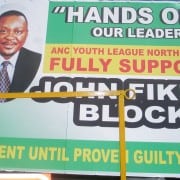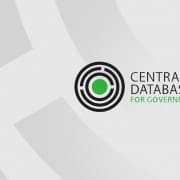|
Getting your Trinity Audio player ready...
|
Global electronics corporation Hitachi’s settlement fine of $19-million for charges brought by the US Securities and Exchange Commission (SEC) against the company for violating the Foreign Corrupt Practices Act (FCPA) is not enough of a sanction.
The Japanese multinational company has a diverse footprint in over 40 countries and boasts growing profit margins year on year – for a prosperous company such as Hitachi the $19-million fine is hardly a sufficient punishment for the FCPA violation. To win the fight against bribery and corruption and deter other companies who may be tempted, more prosecutions should be brought against big corporations such as these.
In April this year Corruption Watch was one of six signatories of an open letter to the Organisation for Economic Co-operation and Development, protesting the organisation’s appointment of Richard Alderman, a former director of the UK’s Serious Fraud Office, to its high-level advisory group on bribery and anti-corruption. Other signatories included Corruption Watch UK, Global Witness, The Corner House, Campaign Against the Arms Trade, and Right2Know South Africa.
The group stated its concern about Alderman’s apparent preference for using settlements to wrap up cases of foreign bribery by UK companies, rather than pursuing a more appropriate punishment through prosecution.
The group wrote “There is increasing concern over the use of settlements and whether they sufficiently deter bribery, or represent a just outcome for corrupt behaviour that often has deeply harmful effects in developing countries”.
There is also concern about the lack of transparency in arriving at such settlements.
A tangled web
Hitachi was charged by the SEC of falsifying payments to the country’s ruling party – through its funding vehicle Chancellor House Holdings – in connection with contracts to supply boilers to two multi-billion dollar power plants, Medupi and Kusile. The two contracts were worth $2.9-billion and $2.7-billion respectively. According to the SEC, Hitachi was aware that Chancellor House was a front company for the ANC during the bidding process but chose to continue to partner with the company, and to encourage it to use its political influence to help obtain government contracts from Eskom.
The payments, said by the SEC to be success fees, were recorded by Hitachi as consulting fees and amounted to around $1-million.
In its court papers, the SEC said that the Japanese multinational sold a 25% share of its subsidiary company Hitachi Power to Chancellor House, to make it Hitachi’s empowerment partner. The stake has since been sold back to Hitachi – but only after criticism that Chancellor’s involvement in Hitachi’s local dealings constituted a conflict of interest. Hitachi sold the stake for around $190-million, but bought it back for $4.4-million.
The SEC said the abovementioned arrangement meant Chancellor House and the ANC would share in the profits from any power station contracts awarded to Hitachi. Hitachi subsequently paid the ruling party’s front company dividends worth some $6.1-million, which were recorded as dividends based on profits derived from the contracts. However, the SEC said in its court papers, “The books and records did not reflect that the dividend was, in fact, an amount due for payment to a foreign political party in exchange for its political influence in assisting Hitachi land two government contracts”.
Thus, said the SEC, in total, Chancellor received approximately $10.5-million from Hitachi, a return of over 5 000% on its investment.
Hitachi has agreed to pay the fine but has neither admitted nor denied the allegations. The ANC has also denied any knowledge of the details of the deal. The ruling party said it had no information on any impropriety relating to the award of the Medupi or Kusile contracts to Hitachi.
Hitachi is the latest in a long line of companies who have been charged with buying their way into lucrative contracts abroad.
Last month global auditing firm KPMG released its latest global anti-bribery and corruption survey. The report showed that regardless of tougher enforcement of regulations to combat bribery and corruption, illicit payments to counter-parties continue to burden economies, diverting resources from people and places where they could do most good.








